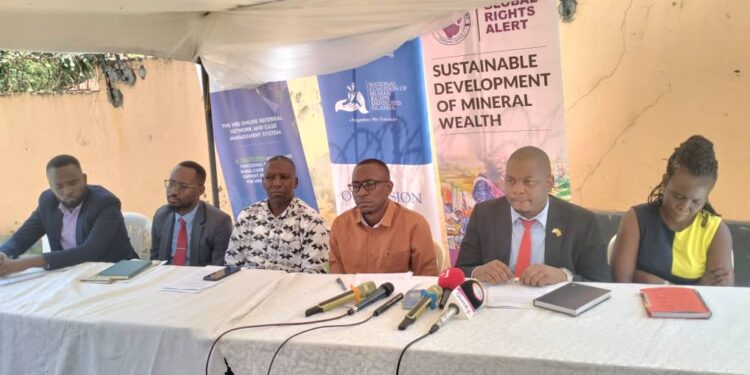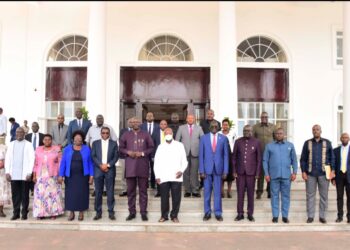The National Environment Management Authority (NEMA) has come under intense scrutiny for its ongoing eviction operations to reclaim and restore wetlands in Kampala City and neighbouring areas.
Two weeks ago thousands of poor urban residents in areas such as Ganda-Nasere and Nansana along the Lubigi Wetland were displaced, resulting in widespread destruction of property and severe disruption of livelihoods, particularly affecting women and children. The forceful evictions have attracted significant national and international attention, highlighting serious concerns about human rights violations.
A coalition of organizations and individuals, under the umbrella of Human Rights Defenders, has strongly condemned these evictions and have called upon the Parliament to prob the manner in which NEMA is undertaking the eviction in Lubigi and stand with the lower class of the Ugandan Society, undergoing deprivation, simply on account of their being poor and as thus easily targeted under plausible pretexts of protecting the environment and climate change.
On Monday while addressing journalists at the office of the National Coalition of Human Rights Defenders in Ntinda, Andrew Byaruhanga, Executive Director of Resource Rights Africa, accused NEMA of disregarding constitutional safeguards and international human rights standards while executing the recent evictions.
“The evictions are being conducted with excessive force and without proper legal procedures, failing to meet the requirements set by regional and international legal instruments, including the African Charter on Human and Peoples’ Rights (ACHPR) and the United Nations International Covenant on Civil and Political Rights (ICCPR),” Byaruhanga stated.
Speaking on behalf of the coalition he emphasized that evictions should be a last resort and must be carried out with full respect for human rights. He outlined several key requirements that NEMA has allegedly ignored, including exploring all feasible alternatives to eviction, providing legal remedies and compensation for affected individuals, and ensuring that evictions do not result in homelessness or further human rights violations.
“The timing of these evictions is particularly hostile, especially for school-going children who are caught in the crossfire of their parents’ alleged illegal occupation of wetlands and the disproportionate use of force by the state,” Byaruhanga added. The evictions have also been criticized for selectively targeting the properties of the poor while sparing those owned by the wealthy and well-connected, such as Stabex Petrol Station and Mandela Millers.
The coalition has called on the Government of Uganda, NEMA, and Parliament to adopt responsible and sustainable environmental protection frameworks that involve local community participation and adhere to legal requirements for sufficient notice, proper compensation, and equal application of the law. They demand an immediate halt to the ongoing evictions and related arrests, emphasizing the need for humane and legal procedures.
“We urge the Parliament, particularly its Human Rights Committee, to investigate NEMA’s eviction practices and ensure accountability for any human rights violations,” Byaruhanga urged. The coalition also called for the expedited implementation of court directives to develop comprehensive, human rights-based guidelines governing land evictions.
“We remain committed to working with NEMA to find amicable procedures for these evictions that are legally protective of people’s rights and grounded in empathy, devoid of criminalizing poverty,” Byaruhanga concluded.
As the situation unfolds, the call for a balanced approach that protects both the environment and the rights of vulnerable communities grows louder. The national and international community watches closely, awaiting a resolution that upholds Uganda’s commitments to human rights and environmental sustainability.
Do you have a story in your community or an opinion to share with us: Email us at editorial@watchdoguganda.com













